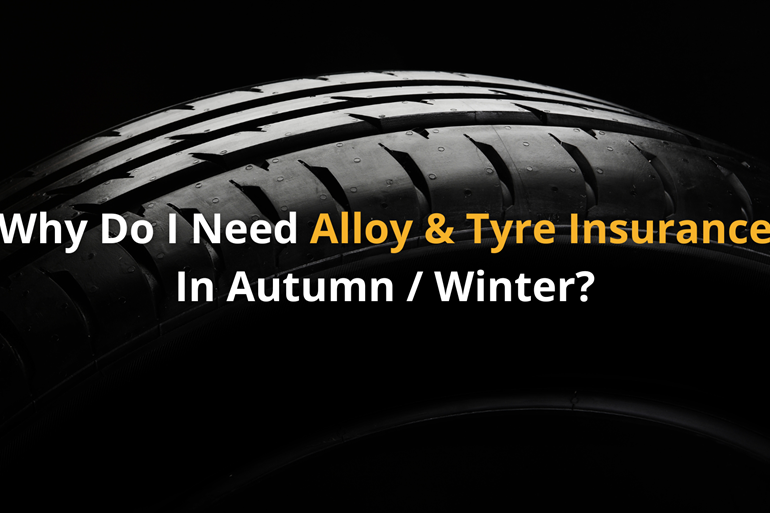
Why Do I Need Alloy & Tyre Insurance In Autumn/Winter?
Understand The Importance Of Tyres & Alloys In Winter Driving...
Alloy wheels are created from a mixture of materials such as aluminium or magnesium. However, this is subject to where you purchase the tyres from, as an alloy can be a mix of any metal type. Varying mixes make alloy tyres much stronger than those composed of a singular, pure metal. Perfect for cautious drivers, alloy wheels are the strongest available on the market.
Generally, we recommend that you fit your car with a set of alloy wheels when possible. It's best to do this ahead of the autumn and winter seasons to prepare your car for harsher weather. One drawback to alloy tyres, however, is their price, so it makes good sense to insure them at Direct Gap Insurance under our specially made Tyre & Alloy Insurance policy. To explain why, we have created this blog post.
What is covered under alloy tyre insurance?
One reason why you may feel reluctant about insuring your alloy tyres is that you aren’t quite sure of the circumstances that we’d pay out for if they were to get damaged. Whilst it’s true that we won’t payout for damage done as a result of normal wear and tear (if they are tyres with split rim construction), we will put a payment towards replacement tyres on ordinary alloy tyres – this includes the labour costs involved to be able to fit the tyre. Accidents happen, whether this has been a scrape with a kerb or a bollard.
"If your vehicle is on finance and is currently fitted with alloy wheels, you should take extra care of them, as you may have to pay a charge if these tyres are damaged during your contract."
However, if you can prove that your alloy tyres were damaged in an incident of malicious ill intent, this changes things. By this, we mean instances wherein the air has been purposefully let out of the tyres, or if they have been slashed. You would be entitled to a payout that covers the cost to fit an entirely new set of alloy tyres. At Direct Gap Insurance, this means a payment of approximately £150 towards the cost per tyre.
Will my insurance cover any damage done to alloy tyres on a vehicle on finance?
If your vehicle is on finance and is currently fitted with alloy wheels, you should take extra care of them, as you may have to pay a charge if these tyres are damaged during your contract.
The next logical step is to find out if alloy tyre damage is covered by your insurance policy for a car on finance. This depends on the financial contract and the company that you have opted for, but we’d say as a general rule of thumb, you might not be charged for light damage. However, if you are, it's that likely your insurance policy won’t pay out to cover this. If you're unsure of what we mean by ‘light damage’, this includes light scrapes, scuffs, etc. This is more likely to be damage sustained in the winter months especially, which is why recommend winter coverage. This is due to the grit put out on the roads and slipping on ice, etc.
However, if heavier damage has been incurred, you’ll probably be charged by the finance company. Heavy damage can include a burst tyre or holes or nails gained even as you’re returning the vehicle. The financing company may choose to replace either the set or just the affected tyre. Either should be covered by the insurance policy. But in the case of intentional damage, you should expect to see a pay-out of around £150 per tyre for those who are covered under Direct Gap Insurance alloy tyre policies.
Can I buy alloy tyre insurance with Direct Gap if my car has been insured elsewhere?
A common question we get asked is whether you can purchase alloy tyre insurance with Direct Gap if your car has been insured elsewhere. The answer to this question is no. You can only buy alloy tyre insurance from Direct Gap if your car has been insured by us too.
Is alloy tyre insurance included as standard in my car insurance?
You may also be wondering if there’s a way that alloy tyre insurance can be covered as standard under car insurance policies. The answer to this is also no, as gap and alloy tyre insurance are two separate policies.
How much does alloy tyre insurance cost?
Alloy Wheel Insurance can start from as little as £109, but this depends on your coverage.
For more information on why alloy wheel insurance is common sense for the autumn and winter months, feel free to contact a member of our team at Direct Gap Insurance today.












